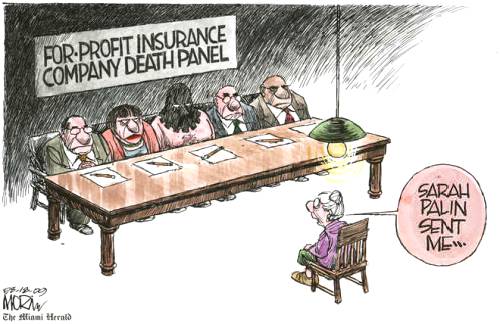auditor0007
Gold Member
TennCare is almost undistinguishable from the health care system currently in the House. Perhaps I misunderstood your post but you seem to be under the assumption that HR3200 would put EVERYONE on the public option immediately. It wouldn't. It would function just as TennCare did. It would also fail as TennCare did.
No I am not under the assumption that everyone would be put on the public plan. What I am saying is that programs such as TennCare are paid for, in the most part, from tax dollars that come from those who do not use the program. In order for such a program to be effective and solvent, the majority of funding must come from those using the program which would happen in great part as those who choose to use the public option will pay through employer deductions (the 8% of payroll levy) and premiums paid by the users of the program.
If however, the beneficiaries of the public option are not paying and the only ones paying are those who are already insured through private insurance, then of course the funding will not be there and it will turn into one big disaster.
Those that participated in TennCare that would not have qualified for Medicaid were charged premiums based on income and TennCare didn't cover seniors that qualified for Medicare. The program simply was unworkable. If the proposal that Obama is hyping is fundamentally different, please show me how.
Honestly I don't know enough about the program. How much were the premiums and who were those covered? What was the average age of the beneficiaries of the program? If the program only had enough funding to spend $2000 per person per year, and the cost in the US is $7900 per person per year, then of course it would have been a disaster. Again, I don't know the real numbers. Maybe you could make them available?




